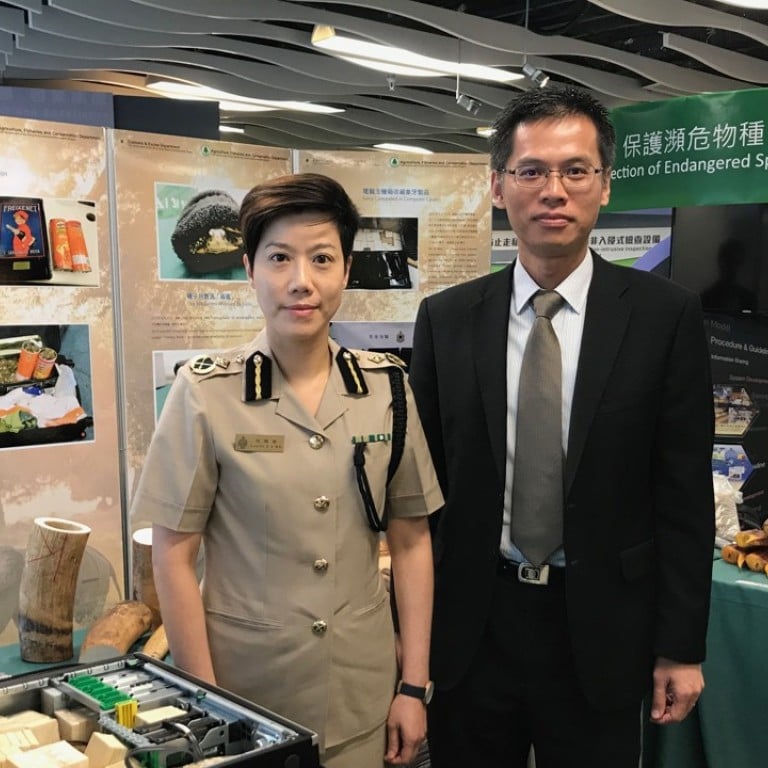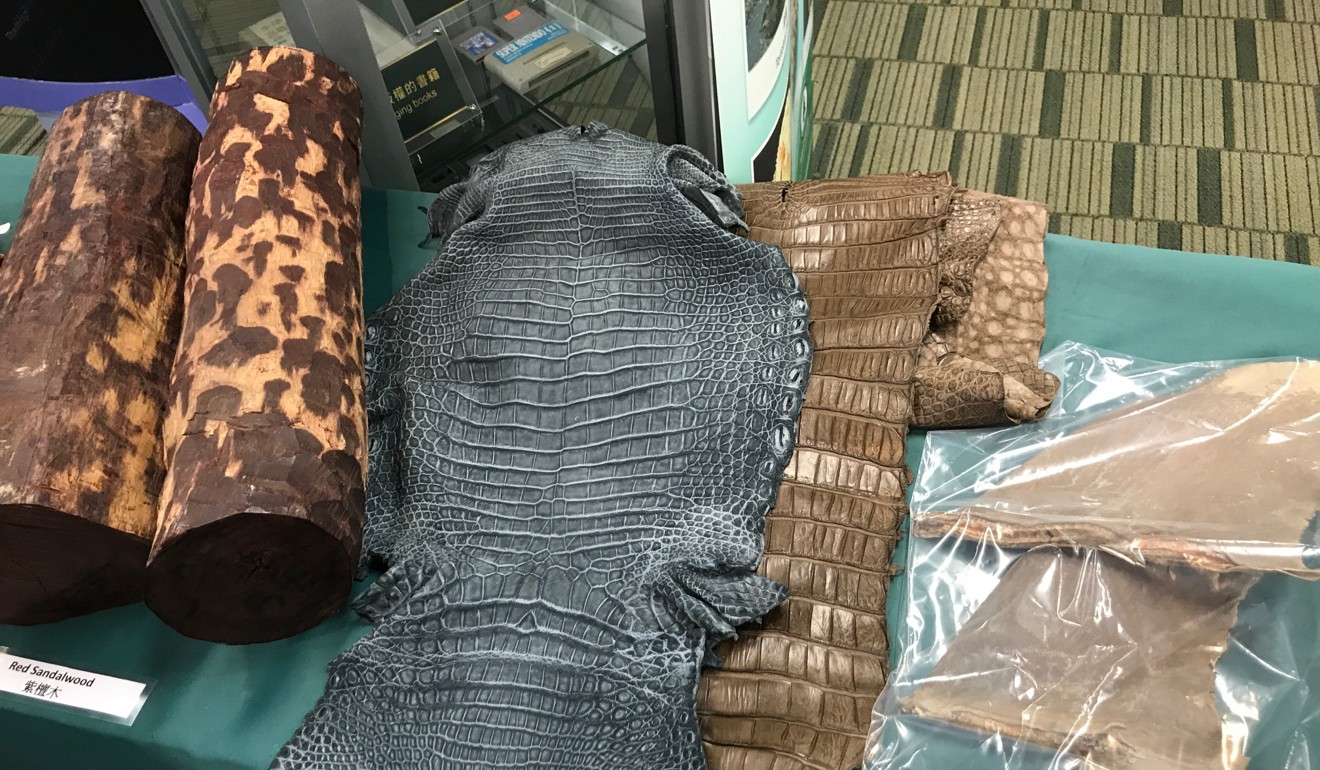
Surge in number of endangered wildlife products seized by Hong Kong customs
Smugglers were caught disguising pangolin scales as potato chips, concealing ivory in computer cases and even wrapping live turtles in socks before hiding them in luggage
Hong Kong customs officers have seized HK$120 million in illegal endangered wildlife products, such as ivory and rhino horn, in the first eight months of this year – a 62 per cent jump compared with the same period in 2016.
Out of 292 cases in total, 84 involved smuggling by passengers arriving at Hong Kong International Airport, compared with just 37 similar cases in the first eight month of last year. The value of endangered species products smuggled by visitors to the city reached HK$12.31 million – a more than six-fold jump.
The number of seized incoming air packages also climbed by 36 percentage points to 87.
Ex-undercover investigator urges more fellow Chinese to fight ivory trade
Officers found smugglers disguising pangolin scales as potato chips, concealing ivory in computer cases and even wrapping live turtles in socks before hiding them in luggage or in boxes.
Louise Ho Pui-shan, assistant commissioner of the Customs and Excise Department, said traffickers had recently turned from smuggling bulky items via sea to bringing in protected species bit by bit in air parcels or by using air passengers to minimise risk.
“Online shopping and e-commerce has been widely developed. The number of parcels entering and leaving Hong Kong is enormous. Culprits therefore made good use of such means to smuggle endangered species,” Ho said.

“Court sentences have been heavy. Traffickers saw the risks, which prompted them to smuggle small quantities each time to reduce loss and avoid being caught.”
In May, customs officers picked up an incoming 27-year-old man arriving from the mainland at Hong Kong airport. In his baggage, officers found 47.4kg of processed ivory that had been cut into small pieces and another 14.5kg of raw ivory concealed in four computer tower cases. The haul was worth HK$1.1 million.
The baggage tag indicated that it came from Harare, Zimbabwe, and had stopped at Addis Ababa in Ethiopia before arriving Hong Kong.
In the same month, 550 grams of rhino horns worth HK$110,000 were discovered in an air consignment declared as a “sample” arriving from Mozambique and destined for Vietnam. The horns were concealed inside a wooden container wrapped with mud and rubber bands.
“Such concealment methods are normally common in drug smuggling. Traffickers racked their brains to [disguise] the contraband items,” Ho continued.
Few buyers for South Africa’s first online auction of ‘harvested’ rhino horns
Overall, customs officers confiscated 3,300 smuggled endangered species products weighing a total of 49 tonnes, compared to 1,900 items weighing 134 tonnes seized in 226 cases between January and August in 2016.
Ivory remains the most commonly trafficked protected species, accounting for 14 per cent of total cases and 63 per cent of the total value.
In July, customs officials made the biggest ivory bust in 30 years worldwide and seized more than 7 tonnes of ivory tusks in a 40-foot refrigerated container from Malaysia.
Other commonly smuggled items include red sandalwood, dried sea horses and even eel larvae from Spain and Portugal, as eel is a popular food in Asia.
In Hong Kong, any person found guilty of importing or exporting an endangered species without a license is liable to a maximum fine of HK$5 million and imprisonment for two years.
Simon Chan Kin-fung, the Agriculture, Fisheries and Conservation Department’s assistant director who oversees conversation, also warned members of public of the legal danger when bringing items such as orchids, caviar, American ginseng and crocodile meat back to Hong Kong as souvenirs because a license may be required in some circumstances.
“Controls in different countries might vary. Sometimes tourists get exemptions if they bring small quantities (of listed endanger species) in hand carry [bags] as souvenirs or for self-use. But mailing them back to Hong Kong without a license is illegal,” said Chan.
He reminded members of public to check the list on the department’s website as more than 35,000 species are protected under the convention on International Trade in Endangered Species of Wild Fauna and Flora.

